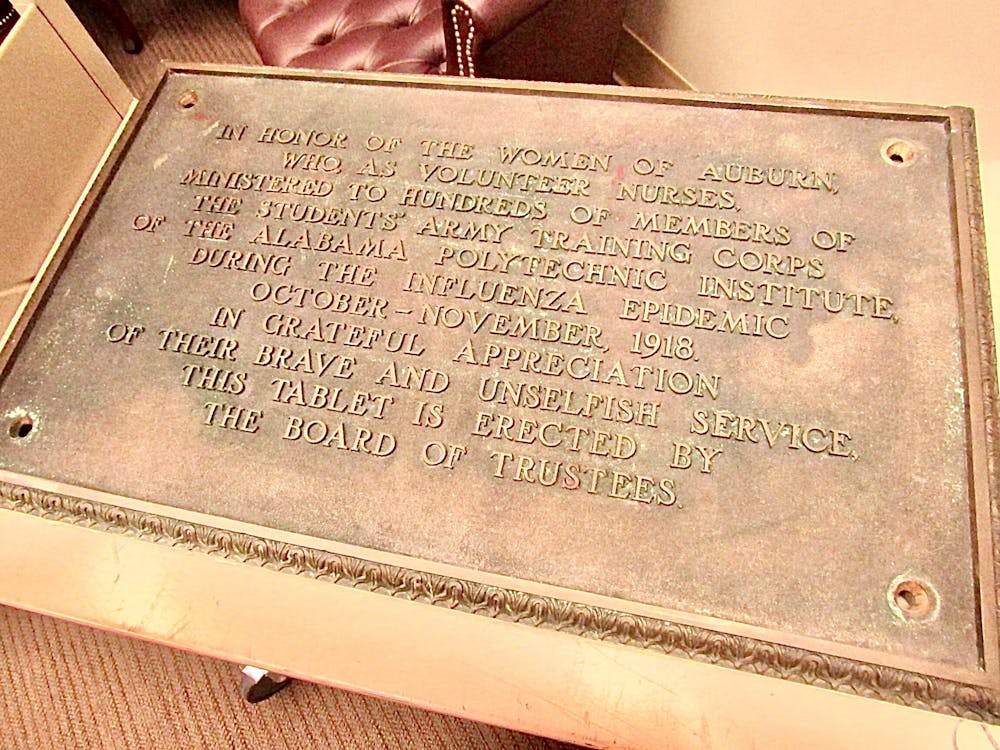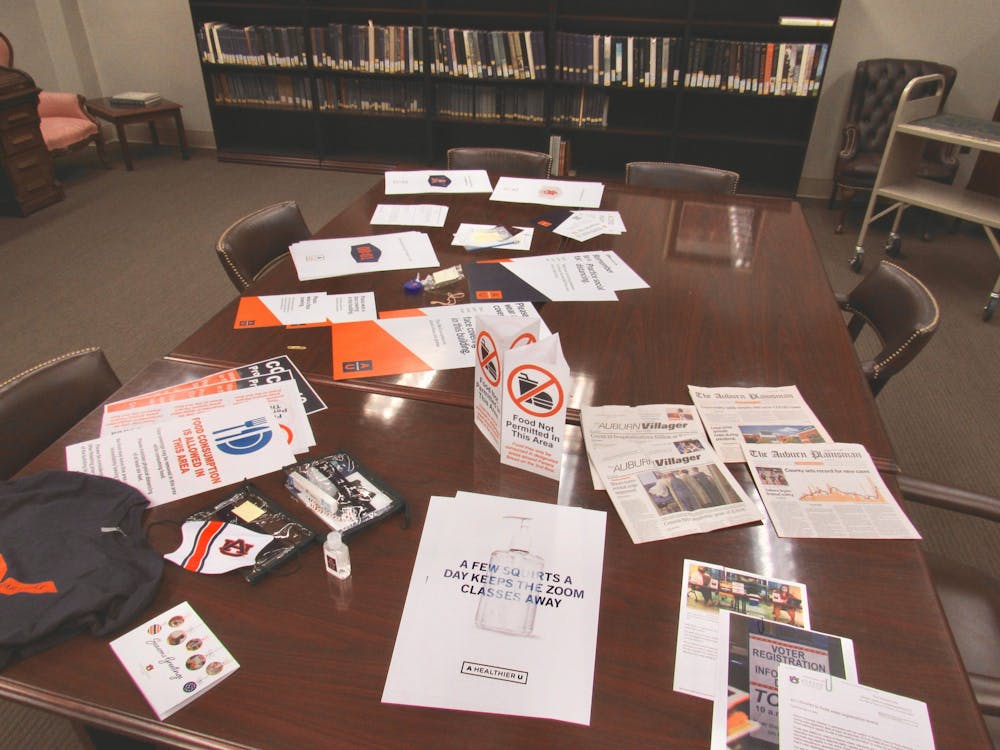Many are hopeful for the beginning of the end of the COVID-19 pandemic as vaccinations roll out, and some may want to forget that it ever happened. There’s one group, however, who feel it will be important to remember how Auburn fared throughout the present health crisis.
The University’s Special Collections and Archives Department has begun an archival project titled AUnique Time. The project collects COVID-related items, documents, photos and experiences pertaining to the Auburn Family and the local Auburn community. The department is seeking the help of students, faculty, staff, alumni and local Auburn residents for contributions, according to Tommy Brown, archivist and associate professor.
Brown said the idea for the project developed when the department noticed it had very little in its collection directly from the 1918 influenza pandemic and its impact on the University. A plaque commemorating the work of Auburn’s student nurses exists in the archives after it was removed from Langdon Hall, but it is not directly from the time of the pandemic, he said.
“We have a few things that are related to that pandemic, but not a lot, so what I wanted to do was try to do a better job this time around on documenting a pandemic,” Brown said. “We got to looking and it was like, ‘Well, we do have some photographs and this plaque but that’s about it.’”
Masks, wellness kits, campus signage of University COVID guidelines and local newspapers featuring pandemic-focused stories are among some of the items the department has received up to this point. The archives are also printing out emails from the administration.
Auburn is not the only higher education institution attempting to archive pandemic items. However, Brown said that his department is somewhat behind the curve with the idea because it was performing other functions during the University’s remote operations.
“There were archives that started last March doing this kind of stuff, and it kind of took us a while,” Brown said. “Our department was still open whereas a lot of university and state-related archives were completely closed. We had a limited number of staff but we were still coming in the office, researchers were coming here, we were making copies for people who didn’t want to come to campus.”
The name “AUnique Time” was conceived by archivist Lisa Glasscock, who wanted to respect the loss of life that has occurred during the pandemic but also create a memorable title, Brown said.
While anyone is welcome to donate to the project, Brown said the department is especially enlisting the help of students to pitch in items that future generations of students may be interested in. He noted that classes who tour the archives are usually interested in seeing student life of the past through possessions.
“We have a lot of items here from students — beanie caps when people used to wear those things, band instruments ... [and] demerit books that date back to the 1910s and 1920s,” he said. “Being caught uptown without your official uniform, you would get demerits for that [and for being] caught smoking uptown. Anything goes for the pandemic.”
As one example, Brown said a band student recently donated a special musical performance face covering. For contributions like masks, Brown said the department is taking precautions in how it handles receiving these items by isolating them from touch for some duration of time so archivists do not risk coming into contact with COVID-19.

The aim of the project is not only to take in physical items, Brown added, but accounts of life during the pandemic told through audio and video recordings. Those interested in contributing digital files to the project can complete a Qualtrics form available on the Auburn University Special Collections and Archives Department website.
“If somebody wanted to click record on a smartphone ... we would love that,” he said. “If somebody wants to stick a bunch of videos or audio on a thumb drive, they can bring it in. There’s a place [on the form] where people can provide details if they want to [as] it’s always nice to provide context.”
Because contributions are made available to the general public once donated, the form also offers an option for people to request that their donation be closed for two or five years if it may include information the contributor wants private for the immediate future. The department is willing to extend the close date if contacted, Brown said.
“Preferably we would like things to be open,” he said. “We want things to be research-oriented in the future.”
As of writing, the department has received around 50 physical items for the project ranging from T-shirts to a bandage from someone who received the COVID-19 vaccine, according to Brown. It has very few digital items currently, but archivists are hoping to record Auburn University Marching Band performances as part of the collection.
Brown said more personal accounts in writing or recording would be appreciated, and the department is seeking photos or other donations from Greek life organizations as well. He also encouraged faculty to send materials like syllabi if willing.
Do you like this story? The Plainsman doesn't accept money from tuition or student fees, and we don't charge a subscription fee. But you can donate to support The Plainsman.

Tim Nail, junior in journalism, is the campus editor for The Auburn Plainsman.





